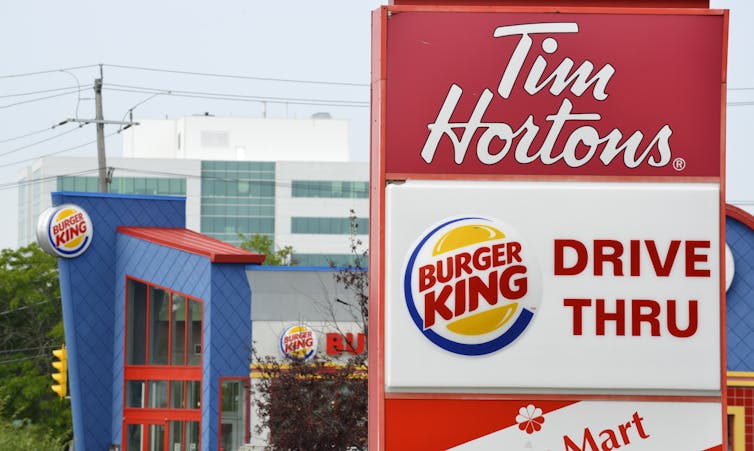
The US$11 billion merger of Burger King and Canadian coffee and doughnuts chain Tim Hortons is the latest example of a tax inversion move. The deal will see BK transfer its company headquarters from the US to Canada and is clearly not driven just by a quest for control of the markets, but also by tax considerations.
The headline corporation tax rate for the US is 35% – though after numerous allowances and deductions, the effective average rate of tax is around 12.6%. The headline Canadian rate is around 26%. Some might see scope for tax savings here depending on the effective tax rate of the companies concerned, but that is not the whole story.
Playing the inversion game
The US Treasury has identified “earnings stripping” as a key motive for corporate inversions. Here are a couple of examples. Companies can locate intellectual property in subsidiaries that are in low/no tax jurisdictions. They then licence other group members to use the same name for royalty payments. The payment is marked as an expense in the country of the paying company. It is tax deductible and so reduces taxable profits.
Another strategy is to play the borrowing game. The company located in a high tax rate jurisdiction is loaded with intragroup debt. The payment of interest attracts tax relief and reduces taxable profits. Profits are therefore shifted to other entities located in low/no tax jurisdictions and result in lower tax bills.
Burger King is not alone in the inversion game: 47 US corporations have moved their tax base overseas through corporate inversions in the past ten years – far more than during the previous 20 years combined and the game appears to be accelerating.
UK companies play this game too. Boots, the UK high street chemist, generates about 40% of its revenues from NHS prescriptions, all funded by taxpayers. After a £9 billion leveraged buyout it shifted its control from Nottingham to Zug in Switzerland. The debt is mostly left in the UK although it is not entirely used there. Because the UK government gives tax relief on debt interest payments, Boots was able to reduce its UK taxable profits by £4.2 billion from 2007 to 2013 and so reduce tax payments of nearly £1 billion.
The tax avoidance toolkit
Tax inversions are part of a corporate race to the bottom. They are holding governments to ransom and saying “give us what we want, or we will cause economic havoc”. And the current system lets them get away with it.
Companies can do these kind of deals because they sit on mountains of cash. And rather than investing directly in productive facilities they use this cash for mergers and takeovers, which produce tax savings. US companies alone may be sitting on US$2 trillion.
Plus, there is a constant need for profits to rise. Stock markets expect it and executive remuneration is commonly pegged to profits, causing executives to find ways of mutually benefiting themselves and their companies.
On top of this, neoliberalism, a key defining ideology of our times, does not offer any moral guidance about how much profit or pay in enough. In this vacuum, bending the rules to increase profits has become a much sought-after skill. Armies of accountants, lawyers and other experts dream up wheezes. Tax inversions are just one part of the tax avoidance toolkit.
Fundamental reform needed
Politicians have become subservient to corporate interests and show little sign of checking inversions or any other form of corporate tax avoidance. They can abolish or limit tax relief on debt interest payment, but they don’t. And companies are given special treatment in this regard. After all, individuals borrowing money to buy a house or anything do not receive tax relief on any mortgage interest payments.
All companies migrating for tax purposes should be required to return all subsidies and loans and make good on all environmental damage.
And more fundamental reform is needed because the current corporate tax system is the outcome of treaties and protocols established in the early 20th century when our modern form of transnational corporations did not exist. The European Union is advocating an approach known as the Common Consolidated Corporate Tax Base, which is a variant of unitary taxation. Under this, companies would be taxed on the basis of their economic activity rather than where they are located.
The key principle is that a corporation like Burger King would be treated as a single global entity rather than a disparate collection of independent subsidiaries, located in different places where it can shift its tax base to. Instead, a global taxable profit would be calculated.
The profits of the company as a whole could be allocated to each country of its trade on basis of a formula which takes into account all of its sales, the location of its assets and employees. Each country can then tax it in accordance with its democratic mandate. Such a system would negate earnings stripping and profit shifting.
Naturally, this is opposed by big corporations and until this kind of system is enforced, we will continue to see tax avoidance moves made by them for the foreseeable future.
